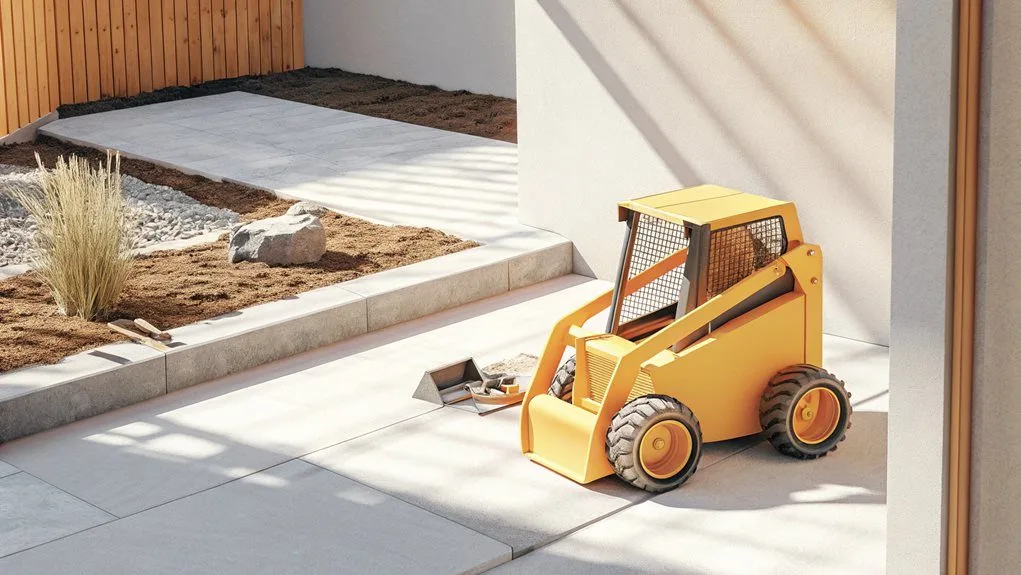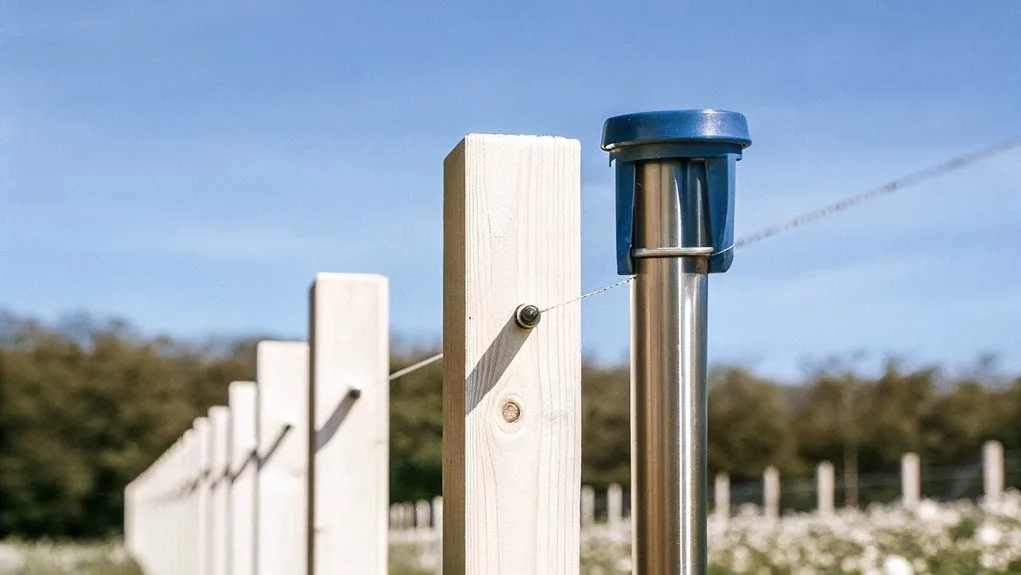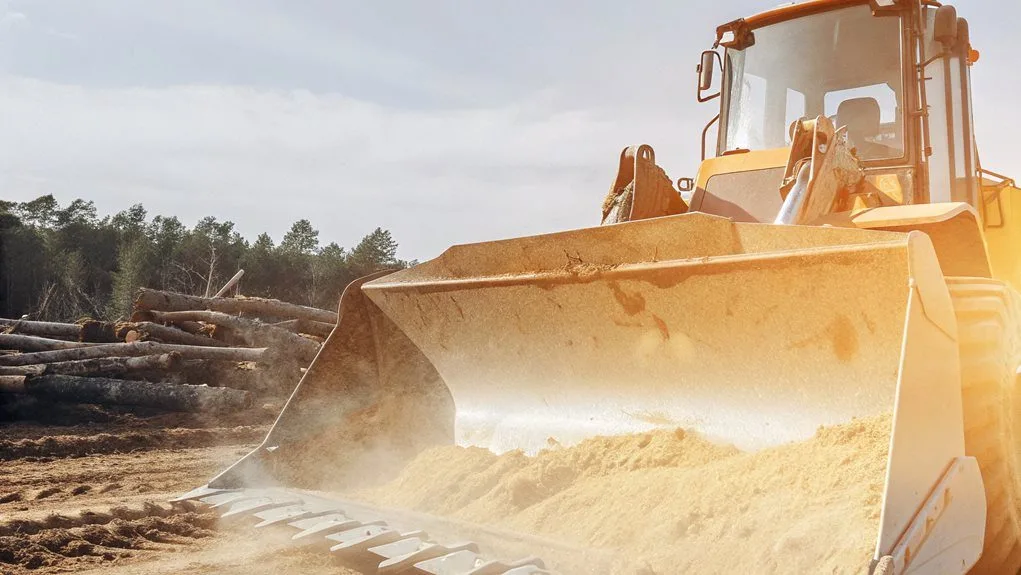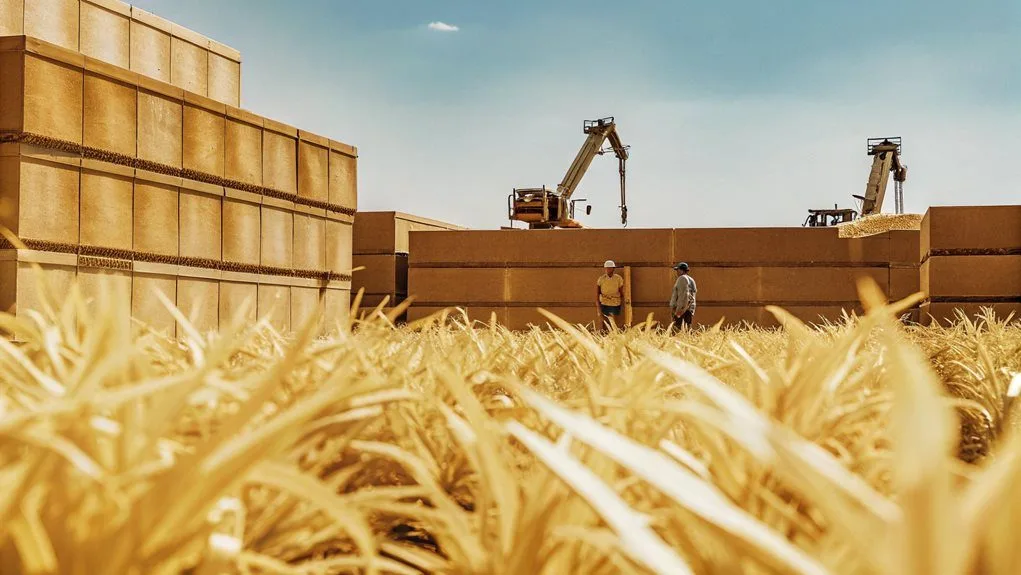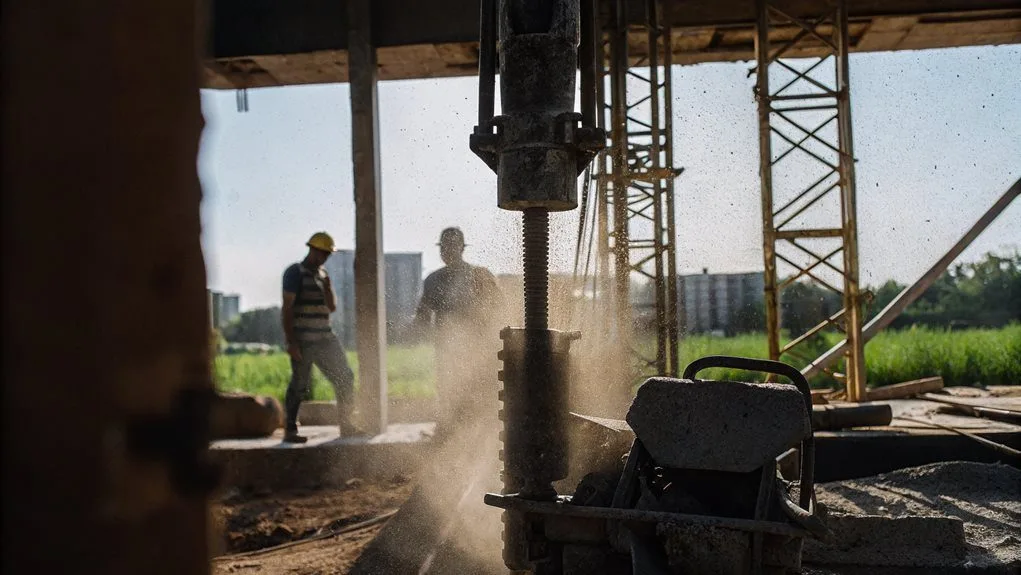When you hire a TLB, you’d better know your stuff. Regular maintenance checks are non-negotiable; skipping them is like daring a disaster! You’ll need to inspect fluid levels, tyres, and safety gear. And let’s not forget, your operator’s got to have a valid certificate and can’t be a total rookie.
Safety regulations? Oh, they’re real. PPE is your best friend! Want to make sure everything runs smoothly? Stick around; there’s more to cover!
Key Takeaways
- Ensure regular maintenance checks are performed to extend the TLB’s lifespan and prevent costly repairs during its hire period.
- Use an essential equipment inspection checklist to verify fluid levels, tyre conditions, and safety equipment functionality before operating the TLB.
- Confirm that the operator possesses a valid TLB operator’s certificate and has at least three years of relevant experience for safe operation.
- Follow safety and compliance regulations by using PPE, understanding emergency procedures, and conducting routine operational checks on hydraulic systems.
- Take advantage of ongoing training and development opportunities to keep skills up-to-date and enhance productivity while using the hired TLB.
Importance of Regular Maintenance Checks
So, why should you bother with regular maintenance checks? I mean, who doesn’t love spending an afternoon tinkering with equipment? But seriously, skipping checks is like tempting fate—your gear might just decide to break down when you need it most.
Regular maintenance extends your equipment’s lifespan and saves you from costly repairs. Preventive Maintenance ensures that your machinery operates smoothly and can be scheduled, avoiding the hassle of unexpected breakdowns. It’s important to recognize that operating practices significantly influence overall equipment longevity, so taking the time for maintenance checks really pays off.
Imagine finding out you could’ve avoided a major issue just because you didn’t grease a joint.
Plus, let’s be real: when machinery runs smoothly, everyone’s happier on-site. You get your work done efficiently, and who doesn’t want to look like a superstar in front of the boss?
Essential Equipment Inspection Checklist
An essential equipment inspection checklist is basically your best friend when it comes to avoiding headaches on the job. Seriously, you don’t want to find out mid-operation that your fluid levels are low or your tyres are practically begging for air. Just think about it—checking for cracks in the glass and ensuring all those fancy lights and alarms actually work? Life changers! Don’t skip on verifying safety equipment and making sure seat belts are functional. Oh, and that backup alarm? Yeah, it should actually be functional, not just a suggestion! Remember, conducting a thorough Daily Site Vehicle / Plant Inspection Checklist is crucial to keeping everything safe and operational, especially when you consider the importance of marking blocks with initials or “X” for faults. After all this, document any issues and clean up before you call it a day. You really wouldn’t want to treat your equipment like a neglected pet, would you?
Operator Skills and Knowledge Requirements
You’ve got your equipment checked and ready to go, but what about the person behind the wheel?
Hopefully, they’ve got a valid TLB operator’s certificate and three years of experience—because we all want that chap who can dig, not cause a sinkhole!
Basic qualifications like a matric certificate and decent English skills don’t hurt either.
You wouldn’t want to find yourself working with someone who thinks “hazard” is a type of bird, would you?
Precision in manoeuvring and some serious troubleshooting skills are vital, too. Knowledge of the equipment’s range of motion helps them avoid hazards and operate safely on-site. Additionally, candidates must be prepared to work at odd and long hours to meet project demands.
Oh, and let’s not forget their ability to communicate clearly with the team.
It’s a group effort after all.
Safety and Compliance Regulations
Safety and compliance regulations are like the rulebook nobody wants to read, but trust me, you need to know what’s in it.
Ever thought about how fun it’s to put on PPE? Yeah, me neither. But those gloves and safety glasses? They’re non-negotiable for a reason.
And let’s not forget emergency procedures—there’s nothing like knowing where the first aid kit is when you need it. Being aware of cookie policies can also ensure you’re not missing out on crucial user behavior data that could affect your work within compliance.
You’ve got to keep track of those operational checks, too. Routine safety inspections are a must, especially for hydraulic and electrical systems. A good idea is to follow a thorough TLB inspection checklist to ensure all aspects of the backhoe’s condition are assessed.
And if that roll-over protective structure doesn’t look right, it’s not a suggestion!
Finally, make it a habit to document everything. You won’t thank yourself later, but your future self will.
Ongoing Training and Development Opportunities
Training and development opportunities are like that carrot dangling in front of you—hard to resist but sometimes a little annoying.
Who doesn’t love constant prompts about certifications?
Caterpillar training? Check. OHSA requirements? Double check.
Every three years, you’ll get to reevaluate your forklift skills.
But hey, at least it keeps you sharp!
If you’re into cranes, you’ll need certification from the Construction Industry Development Board (CIDB) or equivalent South African standards too—fun, right?
On the flip side, these programmes enhance your productivity and maybe save you a little rand by reducing downtime.
You’ll feel like a champ operating that skid steer.
So get ready to embark on virtual or on-site sessions.
Yes, it’s a lot, but think of it as a community effort.
More skills, more confidence, and a chance to belong!
Conclusion
So, there you have it. You wouldn’t drive a car with a flat tire, right? Keeping your TLB in top shape isn’t just smart; it’s vital. Regular checks can save you from a breakdown that’s more dramatic than your last family reunion. Make sure you know what to inspect, keep those operators sharp, and stay on top of regulations like a cat on a hot tin roof. Skip the hassle—maintenance is the key to smooth sailing!

